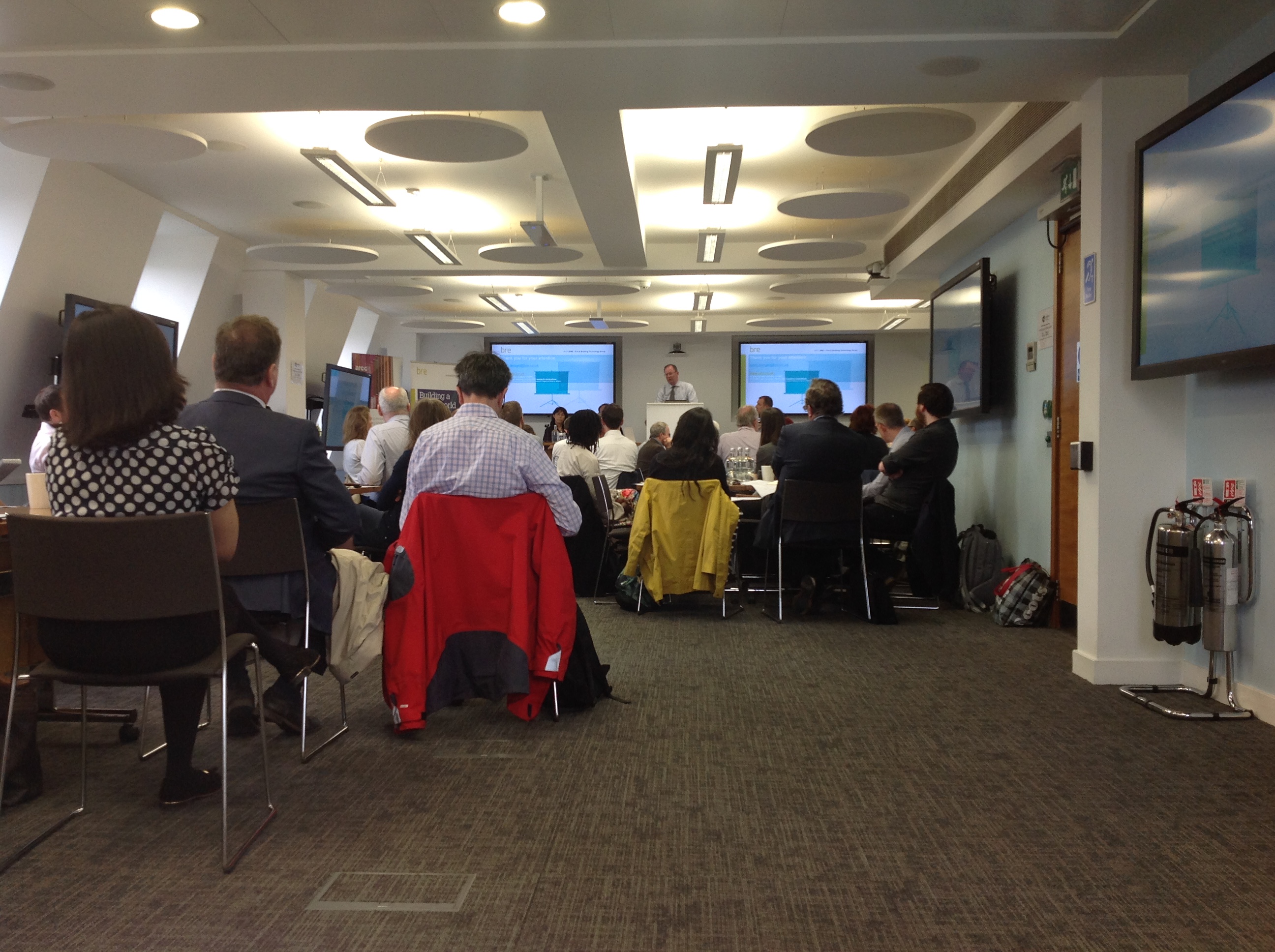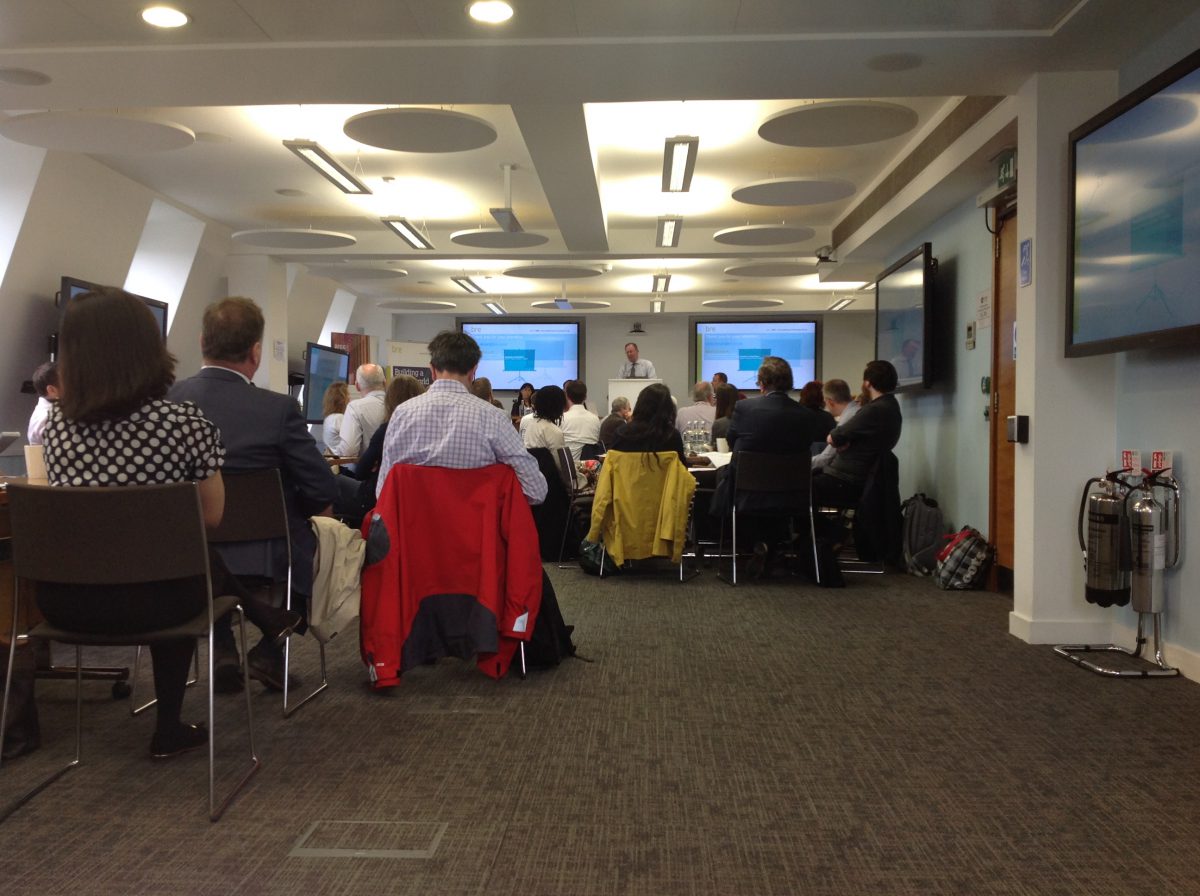Note: This press release is over six months old and the details may have been superseded. Please contact the Press Office for the latest information.
A new working party addressing the challenges of indoor air pollution and its negative impact on people’s health in homes is launching today (12 April) at the “Better homes, better air, better health” event in London. This event is bringing together the research and practice communities across the medical and built environment sectors to help reduce exposure to indoor air pollution.
The new working party’s members include the Royal College of Paediatrics and Child Health (RCPCH), the Royal College of Physicians (RCP), Building Research Establishment (BRE) and the Adaptation and Resilience in the Context of Change (ARCC) network.
It will initially focus on three key areas:
- Identifying gaps in our knowledge on the best ways of reducing indoor pollution
- Providing recommendations for immediate action in the built environment industry and policy development
- Fostering innovative solutions to indoor pollution issues.
This initiative represents a shift away from the current focus on outdoor pollution which itself is directly responsible for 40,000 deaths every year.
Professor Stephen Holgate, the RCP’s special adviser on air pollution said, “When we think about air pollution, we naturally focus on air travel, busy roads or factories. However, one of the more immediate threats to our health is that of indoor air pollution.
“Factors such as kitchen products, faulty boilers, open fires, fly sprays and air fresheners, can cause poor air quality in our homes, workspaces and schools. We need to take action now and protect our future generations.”
Peter Bonfield, CEO of BRE said, “In the UK we spend up to 80% of our lives in buildings – homes, schools and workplaces. Improving indoor air quality represents a huge opportunity to significantly improve our health and wellbeing. Consumers need to be aware of the direct benefits of energy efficiency and how to best implement energy efficiency measures in their homes including ventilation strategies, achieving adequate indoor air quality through increased insulation levels. “
Roger Street, Principal Investigator from the ARCC network said, “In looking to achieve better indoor air quality now and over the lifetime of homes, the engineering research community is already developing low carbon, robust engineering solutions able to respond to the challenges varying external air quality and our changing climate presents. There is already a willingness to act from the built environment community in making use of research findings to improve indoor air quality. This is particularly true for existing public research investment into understanding the linkages between decarbonisation, health and housing.
“An exciting area of emerging research to assist with ventilation design for new and retrofitting applications over the building’s lifetime is the development in air flow modelling between external and internal environments that account for climate change. We are delighted to be at the forefront of establishing a new research agenda focused on the knowledge gaps around the solutions available and their ability to reduce pollution exposure.”
This initiative comes at a time when the importance of air quality is increasingly being highlighted. Following a High Court ruling that air quality plans were ‘inadequate’, the Government is looking to set out plans for improving air quality and reducing emissions. Recently, Mayor Sadiq Khan has announced plan to clean London’s air.
Last year saw the launch of Every breath we take report by the RCP and the RCPCH focusing the impact air pollution has on health, and Each Home Counts report by Peter Bonfield addressing energy efficiency in homes, respectively.
ENDS
For more information, please contact Ana Paun, BRE [email protected].
Notes to editors
ARCC Network
The ARCC network is delivered by the UK Climate Impacts Programme to provide a UK-wide network to develop and exchange knowledge and evidence to inform policy and practice. Funded by the Engineering and Physical Sciences Research Council (EPSRC), the network supports the creation of robust built environment and infrastructure sectors within the UK, to deliver benefits to society, the economy and the environment. www.arcc-network.org.uk
BRE
BRE is a world leading building science centre that generates new knowledge through research. This is used to create products, tools and standards that drive positive change across the built environment. BRE helps its government and private sector clients meet the significant environmental, social and economic challenges they faces in delivering homes, buildings and communities. BRE is owned by the BRE Trust, a registered charity. The Trust uses the profits made by the BRE companies to fund research and education that advances knowledge of the built environment. www.bregroup.com
RCP
The Royal College of Physicians (RCP) is a British professional body dedicated to improving the practice of medicine, chiefly through the accreditation of physicians by examination. www.rcplondon.ac.uk
RCPCH
The Royal College of Paediatrics and Child Health (RCPCH) is the professional body for paediatricians in the UK. RCPCH plays a major role in postgraduate medical education, professional standards, research and policy. www.rcpch.ac.uk

